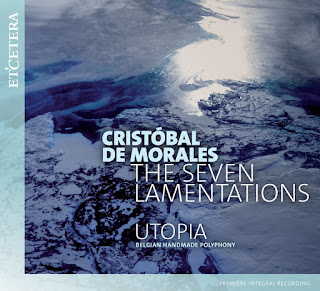Search This Blog
Early music and more by Edward Breen
Where possible, review entries are linked to their original publication.
Posts
Showing posts from September, 2016
The Seven Lamentations: Cristóbal De Morales
- Get link
- Other Apps
Monteverdi Madrigali Vol.1 Cremona
- Get link
- Other Apps

